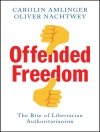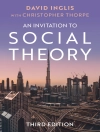This book does to sex what other sociologists did to culture: it shows that sex, no longer defined by religion, now plays a role in the economy and can yield tangible benefits in the realms of money, status, and occupation. How do people accumulate sexual capital, and what are the returns for investing money, time, knowledge, and energy in establishing and enhancing our sexual selves?
Dana Kaplan and Eva Illouz disentangle the current cultural politics of heterosexual life, arguing that sex – that messy amalgam of sexual affects and experiences – has increasingly assumed an economic character. Some may opt for plastic surgery to beautify their face or body, while others may consume popular sex advice or attend seduction classes. Beyond particular practices such as these, the authors trace an emerging form of ‘neoliberal’ sexual capital, which is the ability to glean self-appreciation from sexual encounters and to use this self-value to foster employability, as exemplified by Silicon Valley sex parties.
This highly original book will appeal to students and scholars in sociology, anthropology, gender studies, and cultural studies and to anyone interested in the nature of sex and how it is changing today.
Tabla de materias
1. Introduction: Sex and sociological metaphors
2. Sexual freedom and sexual capital
3. What is sexual capital?
4. Forms of sexual capital: The four categories
5. Conclusion
Sobre el autor
Dana Kaplan is a sociologist of culture from the Open University of Israel.
Eva Illouz is Directrice d’Études at the EHESS in Paris and Rose Isaac Chair of Sociology at the Hebrew University of Jerusalem.












